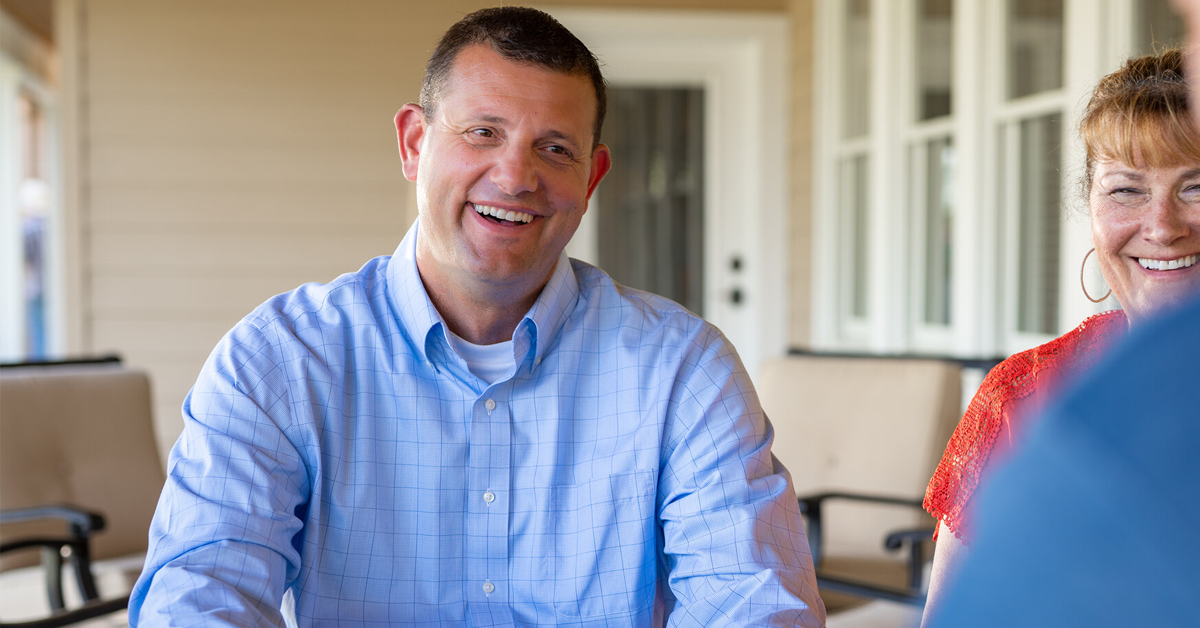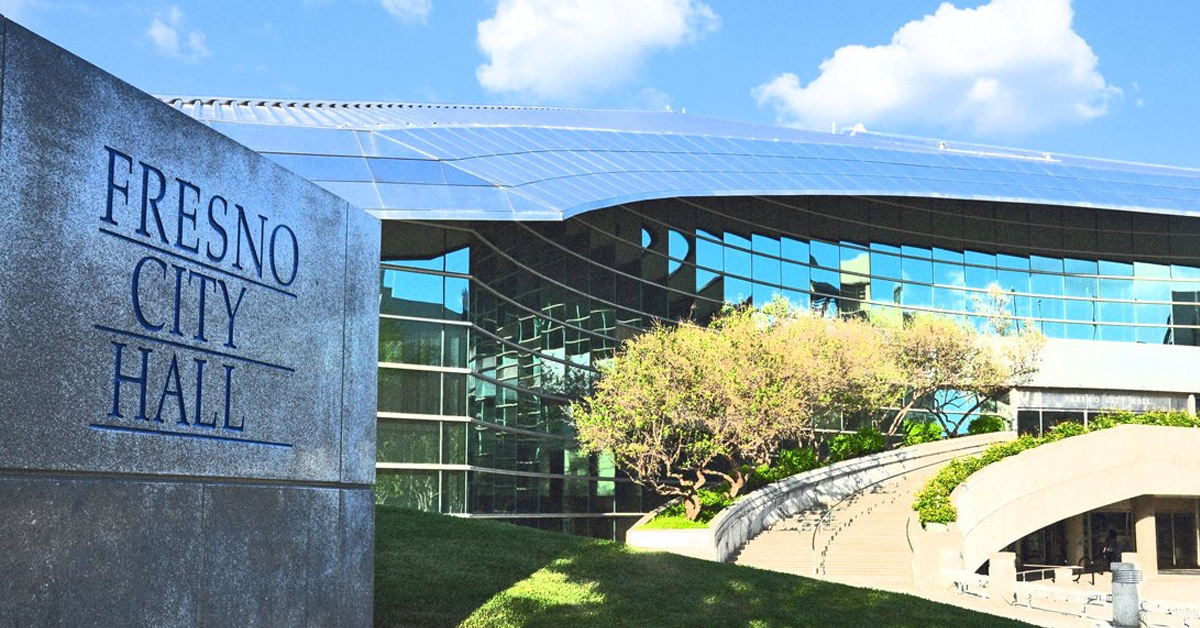Policy at Fresno City Hall deals a lot with the mysteries of personal identity.
Take the events of Thursday as an example.
It all began for me shortly before lunchtime. Like many other Americans, I’ve been struck by the involvement of President Barack Obama’s administration in the issue of transgender civil rights.
Many of us have read about the recent “Dear Colleague” letter sent to schools across the country by top civil rights officials in the U.S. Department of Justice (DOJ) and the U.S. Department of Education (DOE).
Dated May 13, the letter begins by noting that both departments in recent years have received lots of questions from various educators about civil rights protections for transgender students.
“Title IX of the Education Amendments of 1972 (Title IX) and its implementing regulations prohibit sex discrimination in educational programs and activities operated by recipients of Federal financial assistance,” the letter states. “This prohibition encompasses discrimination based on a student’s gender identity, including discrimination based on a student’s transgender status.”
The eight-page letter (with footnotes) explains what that means for schools.
The DOJ and DOE interpret Title IX “to require that when a student or the student’s parent or guardian, as appropriate, notifies the school administration that the student will assert a gender identity that differs from previous representations or records, the school will begin treating the student consistent with the student’s gender identity.
“Under Title IX, there is no medical diagnosis or treatment requirement that students must meet as a prerequisite to being treated consistent with their gender identity.”
The letter goes on to note that schools have a responsibility to provide a safe environment for all students, including transgender students.
“Harassment that targets a student based on gender identity, transgender status, or gender transition is harassment based on sex, and the Departments enforce Title IX accordingly.
“If sex-based harassment creates a hostile environment, the school must take prompt and effective steps to end the harassment, prevent its recurrence, and, as appropriate, remedy its effects.
“A school’s failure to treat students consistent with their gender identity may create or contribute to a hostile environment in violation of Title IX.”
As we all know, the feds’ “Dear Colleague” letter is generating a lot of debate. Two obvious areas of contention: What about showers after physical education class or a sporting event? What about going to the bathroom?
I found particularly interesting the mandate that schools must take “prompt and effective steps” to stop anything connected to transgender students that leads to a “hostile environment.”
It’s my assumption that gender identity is a very personal asset. I assume that the individual student would want to be in sole control as to who else is aware of that student’s gender identity. After all, the student’s gender identity belongs to no one but that student.
I posed to myself this hypothetical scenario:
John Doe, 17-year-old high school student, goes to P.E. class on Monday. He takes a shower in the boys locker room. While showering, he talks to his friend Ben Jones about next Friday’s football game.
Ben Jones that night posts on his personal Facebook page: “John Doe and I while taking showers today discussed next Friday’s football game.”
John Doe goes to P.E. class on Tuesday. She takes a shower in the girls locker room. While showering, she talks to her friend Jane Smith about next Friday’s football game.
Jane Smith that night posts on her personal Facebook page: “John Doe and I while taking showers today discussed next Friday’s football game.”
Question: Are the Facebook postings of Ben Jones and Jane Smith legal?
Seems to me Ben and Jane could be deemed guilty of sexual harassment if John has no desire that her routine actions at school would lead to the very public “outing” of her gender identity. Since the spark of that sexual harassment occurred at school, the school would be liable. The school to continue receiving federal financial aid would have to take “prompt and effective steps to end the harassment.”
I don’t have any answers in this complex debate. But my scenario does suggest that the feds’ “Dear Colleague” letter figures to reverberate throughout society. In one way or another, public schools touch just about every facet of American life.
It was with the “Dear Colleague” letter in mind that I posed earlier this week a question to City Attorney Doug Sloan. I asked (in writing) if City Hall was crafting a policy to ensure the non-discriminatory use of public restrooms.
Sloan is a busy man. He didn’t get back to me immediately. He was kind enough to chat briefly with me before the start of Thursday’s City Council meeting.
I reminded Sloan of my question.
“We have no policy,” he said.
“What happens if you’ve got the fifth grade class from Gibson Elementary School here in the Council Chamber,” I said. “The kids are here at City Hall’s request. One of the kids is transgender and needs to go to the bathroom. What then?”
Said Sloan: “We have no policy. We have no issue.”
Now, there are two ways to interpret Sloan’s response.
Perhaps the city has given no thought to how the transgender civil rights issue might affect policy throughout city-owned facilities.
I find that hard to believe. As I’ve said, public schools and City Hall are partners in all sorts of ventures. Classes takes field trips to the Council Chamber all the time. High school athletic teams use Selland Arena. The Parks Department is joining forces with Fresno Unified to use some of the district’s facilities on the weekends as green space/recreational facilities.
This City Hall-public schools partnership is going to fray in a hurry if the city’s public restroom/shower policy is different than that of schools complying with the feds’ “Dear Colleague” letter.
In other words, the feds’ “Dear Colleague” letter is very much City Hall’s business.
What all this means is simple. How we define our personal identities – how we expect others to react to how we define our personal identities – how we expect the government to use its vast policing power to ensure that others do no harm to our personal identities – is a major public-policy challenge.
And it’s going to be that way far into the future. It’s the nature of modern times.
Which raises the second way to interpret Sloan’s response: “We have no policy. We have no issue.”
Having no policy is a policy. George, Sloan might have been saying to me, use the restroom that makes you happy. We have no policy that says you have to use the men’s restroom or can’t use the women’s restroom.
Please, don’t confuse my ruminating on what Sloan meant to be the reality. But somewhere down the road he’s going to have to clear things up.
City officials gave us another compelling council meeting on Thursday.
The Rev. Larry Arce, who is retiring after 18 years as chief executive at the Fresno Rescue Mission, received an official “thank you” for his tireless work with the destitute. Larry and I were teammates on the Fresno Rugby Club some 40 years ago. He was as brave and relentless on the rugby pitch as he was on the mean streets of Fresno.
The council approved a $445,000 contract with a consulting firm to get the ball rolling on a new parks master plan. Actually, the work is billed as an “update.” If the years-long and just-completed update of the general plan is any hint, the process of rewriting the parks master plan will quickly obliterate any restraining influences on scope of work.
The time had inched past 5 p.m. when Council Member Sal Quintero presented a bill – the Anti-Recruitment Law, I’ll call it.
In essence, the law would make it illegal for members of a criminal street gang (as defined by state law) to attempt to recruit new members when within 1,000 feet of a school or within a public park.
The gang-bangers also would be banned from intimidating any person within this area. The punishment: A fine of up to $500 and/or jail for up to six months.
Luis Chavez, president of Fresno Unified’s board and Quintero’s chief of staff, gave the council a rundown on the Anti-Recruitment Law’s genesis and intent. In the end, the council on a 7-0 vote introduced the law. The council at a later date will vote to adopt the law. If that happens, it goes to Mayor Swearengin for her signature.
The pre-vote debate was surprisingly lively.
It’s one thing to codify a total prohibition of gang recruitment anywhere near the prime hunting grounds for new troops. But how does the city actually execute such a plan?
Well, the cops will do it.
But, as Chief Jerry Dyer tactfully told the council, that’s easier said than done.
For starters, Dyer said, it’s not illegal to be in a gang. The illegal part is breaking the law.
It’s not illegal for one kid to talk to another kid, Dyer said. The illegal part is one kid harassing or intimidating another kid. But what, exactly, is the Anti-Recruitment Law’s definition of “harassment”? The law doesn’t say.
Then there’s the delicate of art of that initial cop-kid contact, Dyer said.
The Swearengin Administration is engaged in a vast effort to reform and remake Fresno’s older neighborhoods. Housing is getting most of the media attention these days, but the Mayor’s work goes far beyond that narrow niche of urban life.
The Police Department and local school districts, Fresno Unified in particular, are part of this campaign. For example, City Hall and the district have a new deal that will put a cop – called a Student Neighborhood Resource Officer – on each of the district’s 15 middle school campuses.
This officer will divide his time between campus and surrounding neighborhood. The officer’s duties are many, and no-nonsense enforcement of the law is a priority. But Dyer very much wants his Student Neighborhood Resource Officers to engage with kids on a more human level. The idea isn’t to be their buddy. The idea is for the officer to be someone of trust and stability.
Dyer told the council on Thursday that Quintero’s Anti-Recruitment Law “could” be a good law. But first it needs some tweaking, some redefining, some polishing. Dyer said Fresno doesn’t need an anti-gang law whose vague demands lead to unnecessary strain between cop and kid, perhaps turning the latter into the gang recruit that the law is intended to prevent in the first place.
The Chief’s comments hit home with Council Member Oliver Baines, a former Fresno cop. Baines told the nearly empty Council Chamber about his pre-Fresno life in Los Angeles. Baines, an African-American, described himself at the time as “a young man of color” working in a shoe store. (Baines chuckled in agreement when a couple of his council colleagues whispered that he’s now an old man of color.)
It was a rare Saturday night on his way home from work that he wasn’t stopped and questioned by Los Angeles police officers, Baines said.
He was being profiled simply by his skin color.
His point, Baines said, is that he doesn’t want “our communities (in Fresno) from being unfairly targeted by the vagueness of the law.”
Baines said the fine work of Fresno cops – community-oriented policing – is too important to risk unnecessary harm to their standing in the neighborhood.
And the reason this image, this status, is so important is because so many youngsters in challenged neighborhoods face a stunning array of hurdles on their journey to productive adulthood, Baines said.
We’re talking about gangs and their promises of a “better” life to profoundly unhappy kids.
“When they’re 7, 8 years old, the recruitment starts,” Baines said. “I see it. They’re young people who are extremely vulnerable.”
So, Quintero’s Anti-Recruitment Law will soon return to the council for adoption. It may undergo so many tweaks that it’s a whole new bill and must be re-introduced. (Kudos to lawyer/community activist Patience Milrod for publicly recommending such a start-over for a law that, she said, “isn’t ready for prime time.”)
I’m sure you can see where I going with this. I began the story with talk about the intersection of personal identity and public policy. All the chatter nationally is over gender identity. Some folks say government shouldn’t stick its nose into the business of gender identity.
But as Thursday’s Fresno City Council meeting made clear, self-rule means trying to figure out when personal identity is strictly the province of the individual and when the group gets to pass judgment on personal identity.
Chief Dyer’s cops are trying to build an authoritative yet nurturing identity in troubled neighborhoods. Young boys from broken homes are trying to build a sense of self in dangerous environments. Rev. Arce spent much of his adult life trying to rebuild fragile identities ravaged by poverty, drugs and despair.
And now gender identity is on the public policy plate.
Perhaps City Attorney Sloan needs to send a “Dear Colleague” letter to his bosses.









